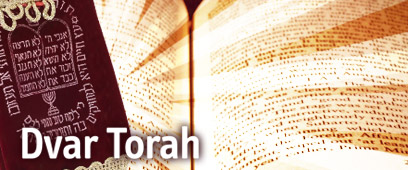

Illustration
Photo: Ata Awisat
This week's parasha usually falls close to the festival of Hanukkah on the synagogue calendar. In VaYeshev, we read about Joseph and his brothers. Hanukkah is about Judah Maccabee and his brothers. Brotherhood is one of those favorable key words in religion and in public life. After World War II, brotherhood meetings were popular, often sponsored by the Conference of Christians and Jews.
The very fact that the goodness and the pleasantness are made contingent upon the “togetherness” implies that brotherhood per se is not automatically good and pleasant. Certainly the Torah, and Jewish and human history prove that brotherhood is often problematical.
The Biblical verse that comes to mind in connection with brotherhood is, of course, "hinei ma tov umah na’im shevet ahim gam yahad" - “Behold, how good and pleasant it is when brothers dwell together in unity” (Psalms 133:1).
Previous Portion
Rabbi Dr. David Frankel
This week's parasha demonstrates respect our ancestors showed toward religious beliefs of residents of Canaan. We all should learn the lesson
The first murder takes place between brothers. One of the ideal friendships - that of David and Jonathan - is not between brothers. Joseph and his brothers begin with strife and end with reconciliation. The Maccabees begin with solidarity and end in bloody strife. Typically, the Bible does not say: Love your brother. It says: Love your fellow, or neighbor.
Choice, feeling, affinity
All human life, in ancient times and in modern times, in the family and in larger social groups, is caught in the tension between the closeness of origins, heredity, and genetic affinity, on the one hand, and expansion of sympathies, external relationships, and love based on the heart rather than on blood, on the other hand. Thus, early man recognized, especially in the Biblical context, that incest was a convenience, but a danger at the same time.
Biblical commentators and rationalizes of commandments explain that if members of the family were permitted to marry each other, sexual relationships would be so frequent and loose that all recognition of parents and children would be impossible.
Therefore, males and females, while looking for members of the same tribe, religion or nation, would go outside of the family to marry. And we end up with marriage, of all human relationships, being based on choice, feeling, and affinity, rather than on accident of blood, genes and inheritance.
Lest we think that incest is a matter of the ancient past and beyond the pale of modern normalcy, recently there have arisen crises in the context of separated brothers and sisters adopted by different couples, or brothers and sisters separated without being adopted, meeting and falling in love.
The present laws against incest in English speaking countries are being reconsidered, especially since medicine is now saying that the dangers of genetic diseases due to inbreeding do not appear for several generations.
Individual tragedies apart, the general taboo should be maintained. The point of Biblical social organization is precisely to move beyond brotherhood based on blood, to brotherhood based on faith, loyalty, and friendship. Thus the teacher, in the Talmudic tradition, is equal to the parent.
God permits Himself to be called father, lover and husband, not because of miraculous conception, but because love based on choice or affinity is equal or superior to love based on blood.
Courtesy of Schechter Institute of Jewish Studies















